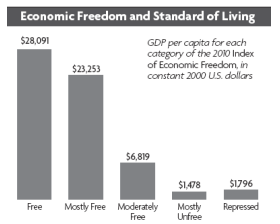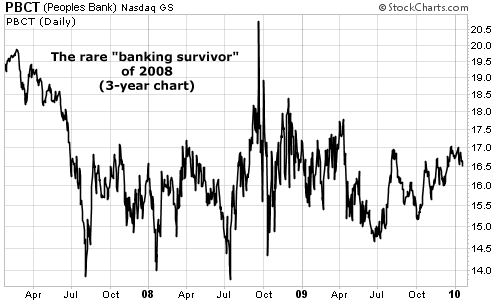| Home | About Us | Resources | Archive | Free Reports | Market Window |
Get the Hint, Mr. ObamaBy
Friday, January 22, 2010
Most people think the loss for the Democrats in Massachusetts this week was about health care.
But that's simple thinking. The real issue is this: Voters are frustrated that their elected representatives in Washington are willfully ignoring their desires. This one is easy to see... According to polls, over half of Americans don't want the government to take control of the health care system. But our elected officials aren't listening. Instead, they are voting the opposite way of their constituents. The American people can't vote in Congress. So the Massachusetts election was simply the only available outlet to express helplessness and anger with government. The U.S. government is set up in what seems like a confusing way to outsiders. But it was designed very specifically by the founding fathers... It was designed to prevent any government leader from having too much control. To put it into today's terms, it was designed to prevent politicians like Nancy Pelosi from being able to pass a bill that over half of Americans do not agree with. Americans are pushing back. I, for one, am glad. You see, a basic rule of economics is this: The smaller the government, the greater that country's prosperity. We can choose to be more like North Korea (with more government control) or more like Switzerland (with less government control). Which sounds more appealing to you? The health care system makes up one-sixth of the U.S. economy. With the government trying to take over one-sixth of the economy, our politicians are trying to make us more like North Korea... That's the extreme, of course. But the relationship between freedom (less government) and prosperity is clear. When you arrange the world's countries in order of freedom (according to the Heritage Foundation's Index of Economic Freedom), then divide them into quintiles, take a look at what you get:  In short, if you want a decent standard of living for all citizens, government control is NOT the way to go. Unfortunately, in this year's Index of Economic Freedom, the United States fell the most among the top-20 countries. We are moving in the wrong direction. (Now, we're not even the most-free country in North America... Canada, even with government-controlled health care, is considered more free than the U.S.) You won't be prosperous unless you are free. Yet for whatever reason, our U.S. elected officials want to dramatically expand the role of government in our lives. So I hope the message of the people gets through... It's not just about health care. It's about elected officials NOT listening to the people who elected them. Fortunately, the people remember better than the politicians that less government – not more – is the real path to prosperity for all. Good investing, Steve
Further Reading:
The Ultimate Way to Make Everyone Equal Market NotesTHE RAREST OF THE RARE SURVIVORS
"Check out this survivor," said my colleague Tom Dyson. "People's United, symbol is PBCT. Yes... a BANK held steady during the crisis."
This week, we've passed along three "houses that held up during the hurricane"... companies whose share prices weathered the 2008 credit crisis and thrived soon after. These kinds of stories are as rare as hen's teeth. But we did manage to find super strength in gold royalty company Royal Gold, fast-food dominator McDonald's, and dividend champion Colgate-Palmolive. Tom passed along People's United Financial for an example of the rare banking company that wasn't crushed in 2008. While most financial companies – from Goldman Sachs to Citigroup to American Express – collapsed more than 75% in late 2008, People's United shares didn't even break their yearly low. How did People's United survive? "Prudence," says Tom. People's United is a large Connecticut-based bank, with a market cap of nearly $6 billion. But unlike other banks during the crazed 2006-2008 period, People's didn't leverage up to the hilt... it held large cash reserves... it required adequate credit of its borrowers... and it continued to pay its shareholders a dividend (it now yields 3.7%). Prudence? Low levels of debt? No government bailout necessary? What a concept! 
|
In The Daily Crux
Recent Articles
|

